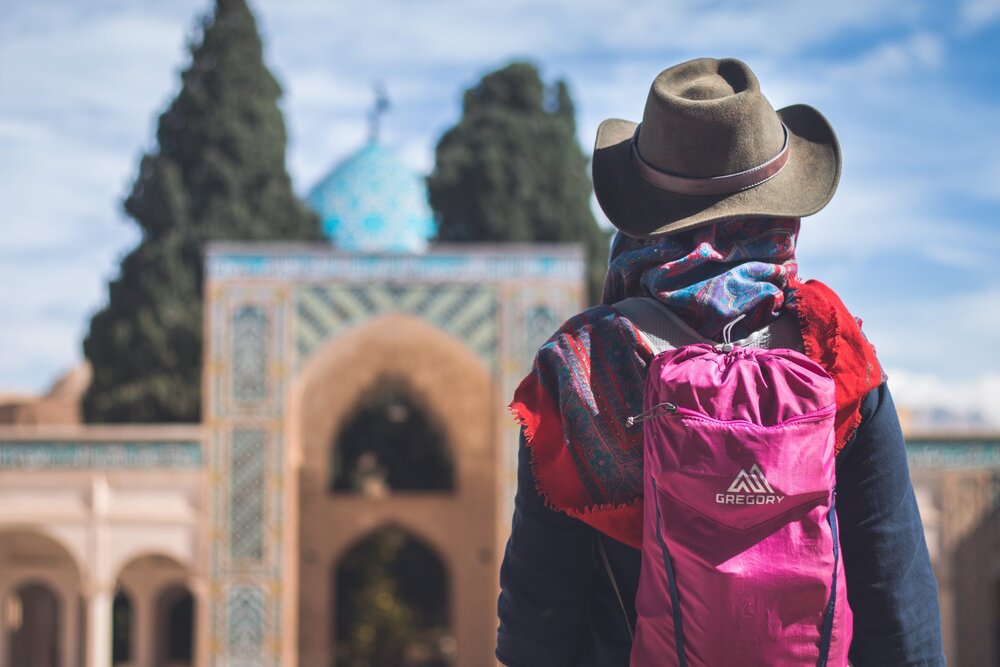World Tourism Day: COVID-19 makes a big difference

September 27th is a special day for potential travelers and all tourism insiders: It’s World Tourism Day! However, for the first time in the 40-year history of the occasion, it will be held this year with a big difference amid the deep global economic recession, job losses, halted flights, as well as lockdowns and closures due to the coronavirus pandemic.
In this tough time, the tourism and hospitality industry in Iran and other parts of the world have been experiencing significant changes after a sudden standstill. On the international front, it is worth mentioning that the number of foreign travelers to Iran reached almost zero! The Islamic Republic registered only 74 visits during the spring season!
Ahead of the 2020 World Tourism Day, many experts across the world expressed concerns about how to re-start tourism; how to make a balance between the half-dead sector with the public health; and how the outbreak could be a catalyst for a major transformation.
Iranian Tourism Minister Ali-Asghar Mounesan has said “Corona is a [bitter] reality but it cannot bring traveling to a complete standstill” as he underlined that “people’s health is our first priority.”
“If coronavirus-related restrictions persist, the tourism industry of the country will suffer irreparable losses and many tourism insiders will be bankrupt… it’s time to replace ‘smart and responsible traveling’ with ‘do not travel’ recommendations.”
Mounesan said in August that Iran’s travel sector had suffered a loss of 12 trillion rials (some $2.85 billion at the official rate of 42,000 rials) since the outbreak of the coronavirus pandemic.
Opening up under health protocols
For the time being, lockdown measures have been lifted in Iran and many other places across the globe, and the tourism sector is being gradually opening up but under mandatory strict guidelines for wearing face masks, maintaining social distance, thermal scanning, and sanitization as well as arrangements for testing. The last few months witnessed changes in demand for immediate travel largely due to individuals traveling for essential purposes or to their hometowns. Now that we are in the unlock phase, we are seeing destinations such as the southern Caspian Sea areas being the top picks for tourists.
Looking on the bright side, this may signify an opportunity to rethink the future of the sector, including how it contributes to the sustainable development goals in the cultural, social, political, and economic arenas. Post-COVID tourism may usher us into a realm of highly digitalized, personalized, and safer than ever; travels of the future may be a hybrid experience between the physical and the digital. Meanwhile, some believe the pandemic may turn tours and travels into luxury items as observing health protocols will raise traveling costs.
Government bodies and counterparts in the private sector have been helpful in kick-starting and building confidence in the digital world. The coronavirus-era is laying the ground for travel companies to further realize the importance of constantly engaging with the consumers via digital channels.
Stakeholders are adopting a two-way communication strategy more than ever to convey vital information to their clients; to engage, create dialogues, and convey information through various digital platforms. The shift in consumer behavior, stringent safety measures, digital boost, innovative communication strategies, government intervention to create travel bubbles, also known as travel corridors and corona corridors, and measures to contain the virus will drive the travel and tourism demand in the post-pandemic era.
The ‘new normal’ entails strict sanitization and hygiene processes at all travel touch points. From the hospitality industry to transport services, there are guidelines laid down by different stakeholders to provide customers a safe environment and further boost their confidence to travel. Each destination is developing to be more digitalized to minimize human contact, and information is being conveyed through apps and reliable sources using technology letting consumers are well-informed regarding protocols for each destination.
“Tourism and Rural Development”
Regarding the World Tourism Day, it should be reminded that “Tourism and Rural Development” is selected as the motto of 2020 World Tourism Day to encourage countries around the world to look to tourism to drive recovery in rural communities where the sector is a leading employer and economic pillar.
Addressing the occasion, UNWTO Secretary-General Zurab Pololikashvili has said: “All around the world, tourism empowers rural communities, providing jobs and opportunity, most notably for women and youth. Tourism also enables rural communities to hold onto their unique cultural heritage and traditions, and the sector is vital for safeguarding habitat and endangered species. This World Tourism Day is a chance to recognize the role tourism plays outside of major cities and its ability to build a better future for all.”
Out of some 64,000 villages that are dotted across Iran, some 33,000 have been deserted and 25,000 villages are each inhabited by less than 20 households. Iranian officials hope to stop and possibly reverse rural-urban migration by mounting rural tourism and creating sustainable jobs for local communities. The Islamic Republic is considering tourism as a strong alternative for petrodollars.
Iran expects to reap a bonanza from its numerous tourist spots such as bazaars, museums, mosques, bridges, bathhouses, madrasas, mausoleums, churches, towers, and mansions, of which 24 being inscribed on the UNESCO World Heritage list. Under the 2025 Tourism Vision Plan, it aims to increase the number of tourist arrivals from 4.8 million in 2014 to 20 million in 2025.
Over the years reasons for travel have evolved, and it is an integral part of our life, allowing people to experience new cultures and traditions, discover new communities, places, rituals, lifestyles, and cuisines. Travel insiders are confident that the love and passion for sightseeing will reignite among people once again, setting a new path for the tourism industry.
AFM/MG
